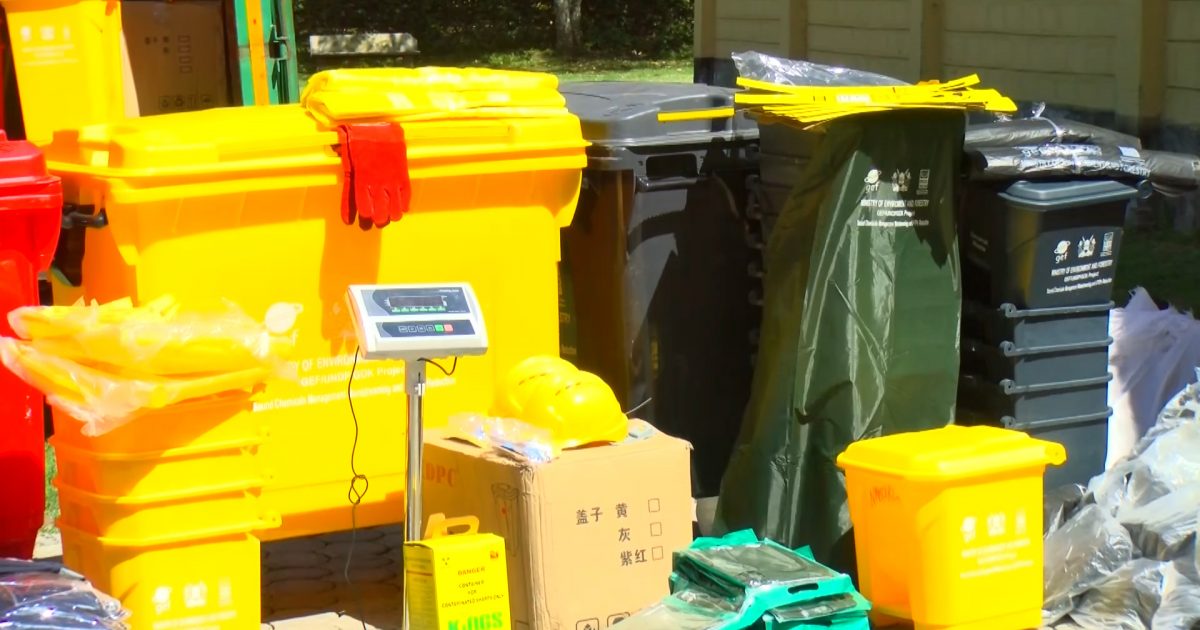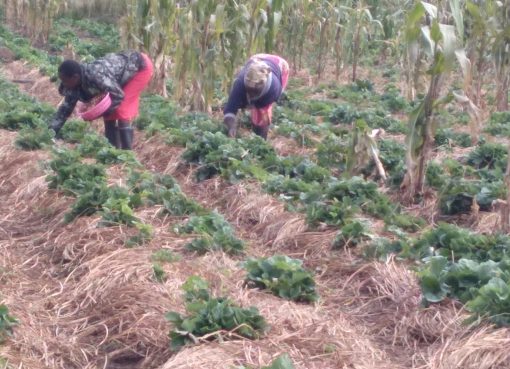The Ministry of Environment and Forestry is fine tuning the National Sustainable Waste Management Bill which aims at cutting down waste by 95 per cent.
Principal Secretary in the ministry Dr. Chris Kiptoo said currently Kenya currently generates 22,000 tons of waste daily, out of which 60 per cent comprises organic material, while 35 percent and 5 percent includes recyclable and non-recyclable matter respectively.
Under the new policy, counties will ensure waste is segregated at source before service providers move them to materials recovery facilities, where sorting, selling and treatment is done.
Five per cent of the waste will be incinerated, 30 per cent recycled, while 60 per cent will be turned into manure. Only five per cent will go to landfills. The proposed legislation seeks to promote green entrepreneurship, technology transfer, green jobs and wealth creation by creating value from waste.
Speaking at the Nakuru Level 5 Hospital Thursday, where he received medical disposal and management equipment from the United Nations Development Program (UNDP), the PS said once enacted into law, the policy will redefine waste as a contributor to an economic growth opportunity rather than a problem.
Dr. Kiptoo noted that the Nakuru Level 5 hospital was currently discharging between one and half and two tons of medical waste daily.

He said the waste management policy, bill and strategy is guided by the circular economy on the 3Rs namely Reuse, Recycle and Reduce. The national government, said the PS, will develop regulations on the use of eco-friendly raw materials and cleaner production technologies.
“This is a principle which is a radical departure from the current practice where nobody wants to touch waste once generated but is transferred to dumpsites. Every citizen, corporate, county government and national government has a role to play. The move will create jobs along the waste management chain” he stated.
The PS, who was accompanied by County Governor Lee Kinyanjui and UNDP country representative Mr. Walid Badawi said there will be the designated sites for setting up waste recovery, recycling facilities and sanitary landfills for secure final disposal of non-recoverable waste.
Currently, the waste generated goes directly to dumpsites, which has resulted in massive growth of garbage mounds across the country.
Badawi said proper management of waste was an effective strategy in containing spread of respiratory diseases including Covid-19.
He said the donation that Nakuru County had received from UNDP would help to set up medical waste disposal facilities at the level 5 hospital, Molo and Naivasha Sub-County hospitals. The United Nations body has set aside Sh450 million for the program to be conducted in thirteen health facilities in Nairobi, Mombasa, Nakuru and Kisumu Counties.
Kinyanjui said 600,000 non reusable face masks were being disposed of, on daily basis in Nakuru posing a further challenge on the management of Covid-19 pandemic.
He said due to non-segregation of waste a significant proportion of the used masks was ending up at the county’s Giotto dumpsite on the outskirts of Nakuru town exposing thousands of residents of nearby estates to health hazards.
“Twenty five percent of the county’s 2.4 million residents have been using disposable face masks and discharging them into normal garbage. This has been ending up at the dumpsite where more than 200 families directly eke out their livelihood,” he said.
The governor further expressed concern that the dumped masks are sometimes washed and used heightening the risks of the virus spreading further.
By Jane Ngugi and Dennis Rasto




